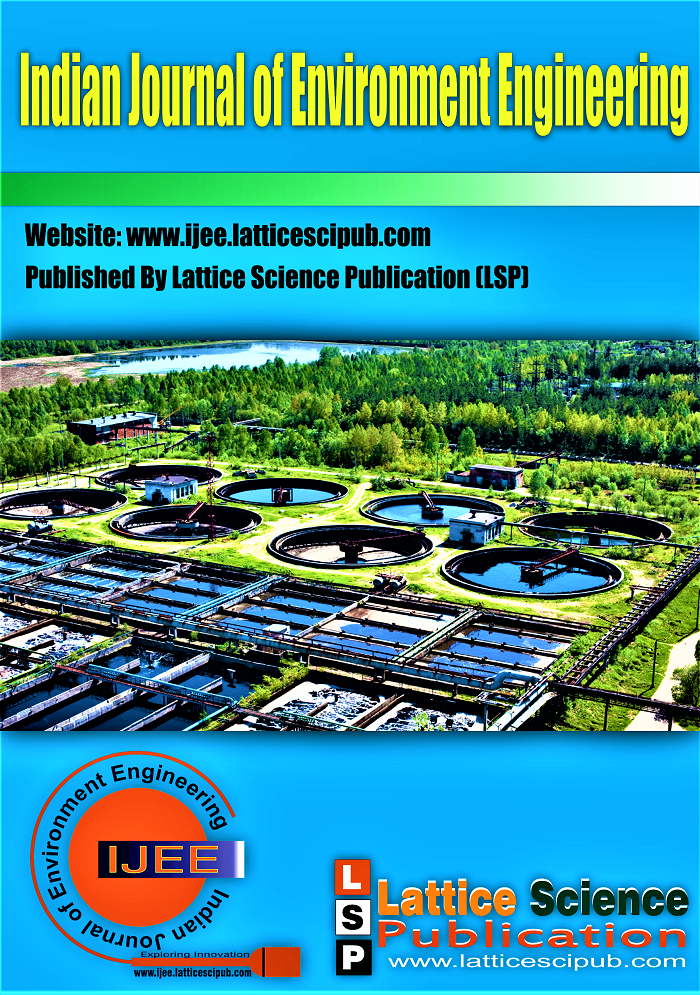Solid Minerals Blueprint for Sustainable Local Prospects and Development
Main Article Content
Abstract
Moving from a much more sustainable social, environmental and economic system confronts the government, the community, the people and the industry. There is far-reaching conceptualization of the necessity for minerals. The present status and blend for the production of minerals may well not be absolutely demanded by a more sustainable economy. But beneath any reasonable definition of necessity, there will be a significant need for some mineral products deep in the nearest future. In the recent world beamed with the rays of extremely competitiveness in which economic attainments rely widely on the ability to be innovative; Nigeria is only clamouring to attain a better innovation outcome. Irrespective of being one of the under-developed nations, globally, Nigeria still stands a strong dynamic Black- Africa by position of its headcount census and the economy. This study assessed the inherent innovation and endowment in Nigeria.
Downloads
Article Details

This work is licensed under a Creative Commons Attribution-NonCommercial-NoDerivatives 4.0 International License.
How to Cite
References
Ada A.(2018): Contributions of Solid Mineral Sectors to Nigeria’s Economic Development, Eastern Mediterranean University.
Adams R. et al (2016): Sustainability-Oriented Innovation - A Systematic Review; Int. J. Manag. Rev.18, 180–205. [CrossRef]
Adekoya J., Kehinde-Phillips O. and Odukoya A. M. (2011): Geological Distribution of Mineral Resources in Southwestern in Nigeria; Journal of Mining and Geology 47: 1–13.
Adenugba A. A. and Dipo S. O. (2013): Non-oil Exports in the Economic Growth of Nigeria - A Study of Agricultural and Mineral Resources; Journal of Educational and Social Research 3: 403. [CrossRef]
Alison-Madueke D. (2009): Opportunities in Nigeria’s Minerals Sector Ministry of Mines and Steel Development, Nigeria: Abuja.
Bako S. (2005): Universities, Research and Development in Nigeria - Time for a Paradigmatic Shift 11th General Assembly of CODESRIA, In Rethinking African Development, Beyond Impasse - Towards Alternatives Maputo, 1–31. Mozambique.
Ben P., Young M. And Darren R.(2019):Three Pillars of Sustainability; in search of Conceptual origins; 14, 681-695 [CrossRef]
Bosworth B. and Collins S. M. (2003): The Empirics of Growth - An Update Brookings Panel, Economic Activity 10: 113–206. [CrossRef]
Budnuka A. C., Clinton A. and Agi-Ottoh C. (2015): The Effect of Unplanned Exploitation of Environmental Resources - The Nigeria’s Experience; Journal of Environment Pollution and Human Health 3: 39–45.
Ezeaku I. P. (2012): Evaluating the Influence of Open Cast Mining of Solid Minerals On Soil, Landuse and Livelihood Systems in Selected Areas of Nasarawa State; North-Central Nigeria Journal of Ecology and the Natural Environment 4: 62–70. [CrossRef]
Freire R., Costa E., Alves J. and Brito C. (2019): A dialectic on innovation and Sustainability; InternationalJ.Innov. Sustain. Dev., 13, 246–258. [CrossRef]
Galabo B. and Trifonova B.(2018): Sustainable development and innovation potential Of the mining companies; University of Mining and Geology, Researchgate, page 1-21.
Gustavo L. et al (2001): The Role of the Minerals Sector in the Transition to Sustainable Development, Catholic University of Chile.
Gutti B., Aji M. M. and Magaji G. (2012): Environmental Impact of Natural Resources Exploitation in Nigeria and the Way Forward; Journal of Applied Technology in Environmental Sanitation 2: 95–102.
Hafizullah A. A. (2009): Solid Mineral Deposits of Nigeria - Potentials, Challenges And Prospects Department of Geology, ModibboAdama University of Technology, Yola, Adamawa State, Nigeria.
Jack J. T., Nkwocha I. B. and Odubo T. R. (2016): Natural Resource Exploitation and Socioeconomic Development, Nigeria (1981–2015); Sustainable Human Development Review 8.
Kuzmaet al (2020): The Relationship between innovation and sustainability - A meta-analytic study. J. Clean. Prod. 259. [CrossRef]
Mineral Rights to Human Rights (2017): Mobilising Resources From The Extractive Industries For Water, Sanitation and Hygiene (Case Study: Nigeria) - Oxford Policy Management.
Moses O. (2009): Solid Mineral Deposits and Mining in Nigeria - A Sector in Transitional Change.
NEITI (2013): Solid Minerals Industry Audit Report 2007 – 2010.
New African Magazine: Nigeria Minister’s unlikely return, 2016.
Olalekan O., Afees O. and Ayodele S. (2016): An Empirical Analysis of the Contribution of Mining Sector to Economic Development in Nigeria; Khazar Journal of Humanities & Social Sciences 19 (1): 88– 106. [CrossRef]
Peru F. (2009): Questioning two myths in innovation literature; The Journal of High Technology Management Research, 20: 40-51. [CrossRef]
Rainford O.B. and Richards R.A. ( 2008): Sustainable Development and the Industrial Minerals Sector - Integrating the Principles of Sustainable Development Within Jamaica’s Industrial Minerals Sector; Business, Finance & Economics In Emerging Economies Vol. 3, No. 1,
Page 90 – 120.
Sidik F. (2015): Menggali Potensi Lokal Mewujudkan Kemandirian Desa; Jurnal Kebijakan & Administrasi Publik, vol. 19, no. 2. [CrossRef]
Tajudeen B. (2018): Nigeria Extractive Industry Transparency Initiative (NEITI) –Solid Minerals Industry Audit Report 2016, Page 4 – 90.
Thijs L. (2018). The Future of the New: Artistic Innovation in Times of Social Acceleration, Arts in society, Valiz.
Uchegbu, S. N. (2015): Sustainable Management of Natural Resources and Biodiversity as a Poverty Reduction Strategy in Nigeria - Environmental Studies and Research Journal 3: 5–24.





